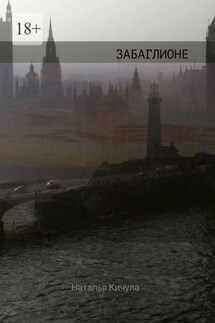Untrodden paths - страница 6
With such a map in your hand, you can find your position in space by aligning the cardinal points and finding a match between the signs on the map and the actual objects in the field. The ability to take measurements means that you can answer the crucial questions: not just what direction do we go in, but where exactly do we go? What do we have yet to pass, and when? What obstacles do we have to overcome, and how long will it take us? No draft, no universal description, would answer those questions.
Andrei: Well, I understand your analogy. But it applies to space, it’s hard to comprehend how Time can be the universal measure in such a case.
Victor: Don’t we measure cosmic space by light years?
Andrei: Well, that’s the Cosmos…
Victor: Don’t we measure the distance to a nearby bus-stop or a kiosk by how many minutes it takes us to walk there?
Andrei: Sure, but we imply an average distance that we cover in a minute. Besides, one can compare only things of the same quality. Space and Time are totally different entities which, as far as I know, have not even been precisely defined.
Victor: Quite right! It’s this absence of precise definition, or rather understanding of the nature of these things which in our minds makes them qualitatively different, incomparable. But these differences are relative…
As I’ve already said, the character of one’s perception depends on the speed, frequency of perception. Depending on its speed, the picture of the perceived thing can range from chaotic to dynamic or static.
If our perception of a thing or a process produces a picture of chaos, it means that in the multitude of the picture’s elements our mind failed to find anything familiar, repetitive.
If our mind begins to single out and recognize as recurring these or those periodically appearing and disappearing elements, a dynamic picture will emerge. A stable periodicity of such repetitions is generally considered as Time.
Naturally, this stable repetitive element must be vital to the observer. I mean whatever gadgets we might invent to measure time: mechanical, electronic, or atomic clocks – the Sun and the Moon will remain as the defining measure of all our life cycles.
If we are to give a brief scientific definition, then Time is a result of a juxtaposition of two frequencies, with the received fraction being periodical.
Andrei: What, again frequencies-amplitudes, again physics?
Victor: Yes, what I’ve done, in effect, is pure physics, where Space and Time are simply ways of arranging, interpreting information, a set of stereotypes.
Andrei: Isn’t your work yet another stereotype?
Victor: It is, but more precise, detailed and therefore of greater practical value.
Andrei: It’s funny to discuss the stereotype of Time in the institution where even possession of instruments for measuring it is strictly prohibited.
Victor: You mean watches?
Andrei: Well, maybe not just them. I guess I mean there must be some missing link in your logical chain, or to put it plainly, you must have gone astray somewhere somehow. Anyway that’s the conclusion all my knowledge and personal experience would rather lead to, unless my knowledge and personal experience are patently insufficient to understand your point. If I follow your logic correctly, the pattern, the path of our development is not determined by the resulting sum of internal and external forces, but by Time?






